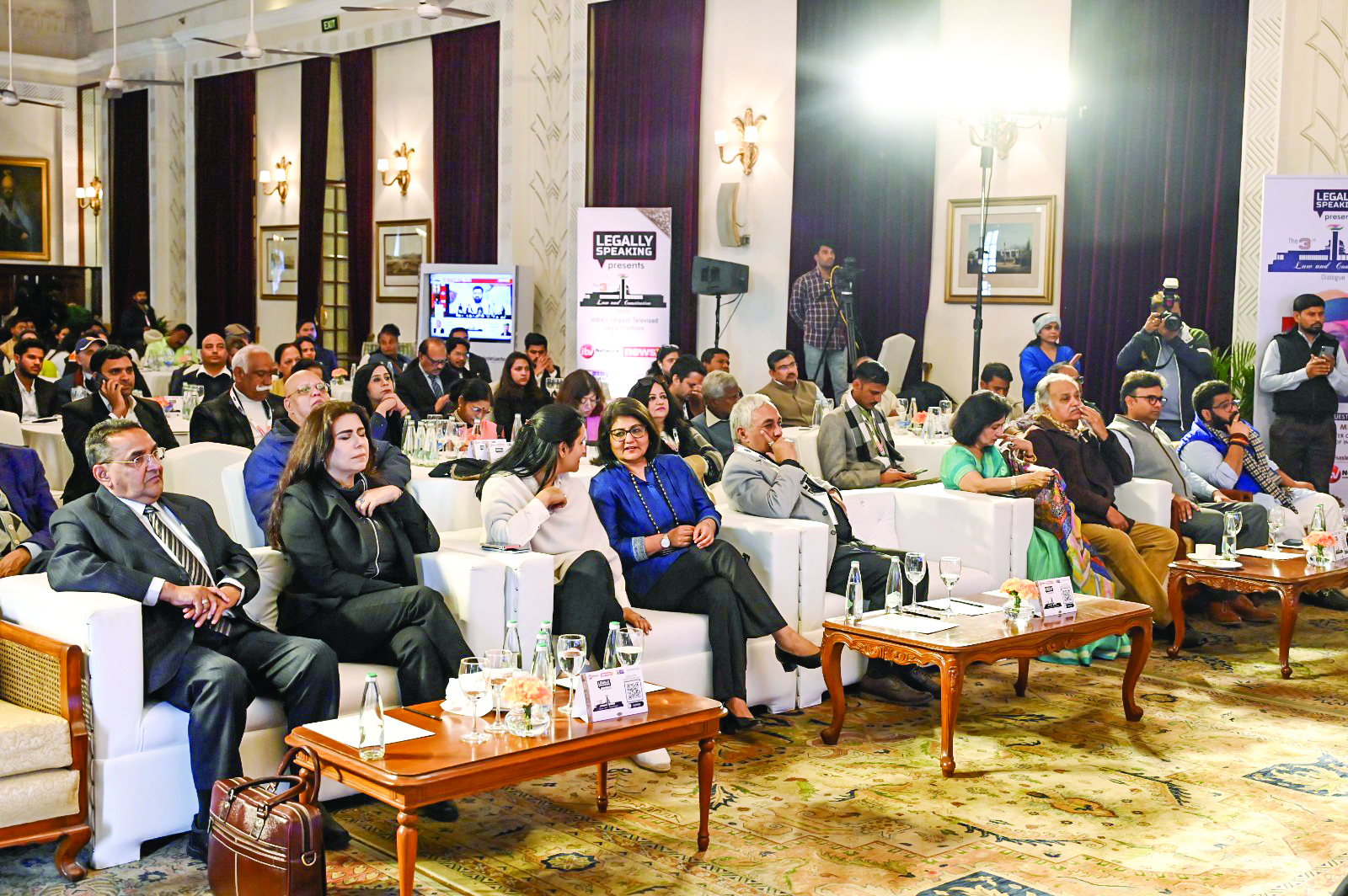“Injustice anywhere is a threat to justice everywhere”. -Martin Luthar King Jr.
“Law should not sit limply, while those who defy it go free and those who seek its protection lose hope”. (Jennison v. Baker (1972) 1 All ER 997).
The sovereign power of the Indian State is never felt as starkly as in interactions with the criminal justice system. Broadly stated, the influence of the police is all pervasive when it comes to enforcing penal statutes. In colonial India, the vast police powers enjoyed by the Government was the object of sharp criticism and ridicule insofar as there appeared to be no accountability or oversight and no form of redress. It is interesting note that the nationalists who strongly abjured the powers of the police were enthusiastic to retain them in the post-colonial nation and quickly thereafter paved the way for its rapid expansion.
Whatever views one holds about the penal law, no one will question its importance to society. This is the law on which men place their ultimate reliance for protection against all the deepest injuries that human conduct can inflict on individuals and institutions. By the same token, penal law governs the strongest force that we permit official agencies to bring to bear on individuals. Its promise as an instrument of safety is matched only by its power to destroy. Nowhere in the entire legal field is more at stake for the community or for the individual.
The early decades of independence were characterized by the ‘license-raj’ where innumerable statutes were introduced to curb economic offences. These included the various laws passed by state governments to implement the directive principle of prohibition, further various economic legislations were introduced to fortify the commodity control as pre-existent. Most of these statutes were enacted to be ‘special’ legislations and operated outside the bounds of ordinary criminal procedure. The need for warrants were done away with and securing bail was made particularly difficult. The criminal law jurisprudence that we see today, is undeniably a legacy of the colonial state and the early decisions made in the wake of post-colonial India.
While the scope and breadth of police powers have remained the same, they have suitably modified to deal with the more sophisticated offences of the 21st century. A laudable development in this regard is the introduction of the Letter Rogatory system where international governments pledge mutual legal assistance in relations to crimes which have been perpetrated across international boundaries.
There are always two sides to thinking about criminal reform. One the one hand, the state will have to ensure that the powers of the police and associated magistracy is not diluted, negatively impacting their ability to enforce the laws of the land. On the other hand, as various examples of custodial violence and extrajudicial killings have brought to fore, there is a need to protect the citizen from the abuse of police powers. It is in the junction between these two paradigms that the courts of the country have a important responsibility.
Chief Justices of India in periodic chief justices conferences have time and again warned about the the fault lines in Criminal Justice System in India. It is common knowledge that the two major problems besieging the Criminal Justice System are huge pendency of criminal cases and the inordinate delay in disposal of criminal cases on the one hand and the very low rate of conviction in cases involving serious crimes on the other. This has encouraged crime. Violent and organised crimes have become the order of the day. The white-collar crime has become a profitable business. Life has become unsafe and people live in constant fear. Law and order situation has deteriorated and the citizens are losing confidence in the Criminal Justice System.
The magistrate has been granted supervisory and corrective powers over the functioning of the police. The magistrate interacts with the police and the accuse person at various stages from the grant of remand to police custody and to extend from time to time as required. This also involves examining the accused to accurately discern their well-being to call for medical tests where it appears that the accused person is being subjected to violence, intimidation and torture. This is a particularly important functions since accused persons are usually powerless when in police custody. The Supreme Court of India has in various decisions stated that the magistrate is not to act as a post-office for the prosecution, merely reiterating the version of the police. We have seen that in various recent examples, the magistrates do not appear to be functioning as independent supervisors of the police. At a first level much needs to be done to liberate the magistrates from the veil of executive influence to better discipline and reign in the abuse of police powers.
Various reports have brought to the fore the despicable state of under-trials in India. It is appalling that over one-third of the people presently occupying the prisons. India is known to have the third largest under-trial population in the world. In such cases, the trials have been pending for decades and the accused person is condemned to suffer inordinate periods of imprisonments while still awaiting trial. Once again, the magistracy is called upon to act. The Supreme Court has reiterated time and again that pre-trial detention can only be justified if there is a real anticipation of the accused person prejudicing the trial, influencing witnesses or absconding. Even in this respect, the prosecution is happy to provide exaggerated versions of apprehensions and the magistrates continue to act as post-boxes.
It is in this juncture that there is also a need to address the fact that quality of legal representation makes a world of a difference of the accused person. While people with the means are able to approach higher courts in revisions or appeals to secure their rights, a vast section of the population who do not possess the means are to be provided free legal aid. While on paper, India appears to have a thriving legal aid system, the truth of the matter perks it ugly head out from newspapers are reports which show that most often the legal aid lawyer has never met with the accused to understand their case thereby making a mockery of the constitutional right to legal representation.
In this context it may also be relevant to note that the Indian police are one of the most powerful police forces in the democratic world insofar as they have wide powers under special legislations such the UAPA, NSA etc. to detain an individual without trial for an extremely long period of time. While there is no doubt that these legislations are meant to deal with a completely different category of offences, the system fails to provide any redress to those wrongly arrested. In such cases, the magistrate appears to be completely bereft of any powers or inclination to take the investigating agencies to task to demonstrate even a semblance of a case. The burden of proof is completely reversed in seeking bail, making it impossible for accused person to prove their innocence while still is custody and without being able to lead evidence. This is another area that need special attention from the courts and legislature alike. Offences under special legislations (PCA,PMLA,SCST Atrocities Act,UAPA )and even offences against women often see low conviction rates. This indicates that there are organisational and structural biases and inefficiencies that are to be ratified.
We have seen however a lot judicial reform when it comes to sentencing, mandatory minimum sentences for minor offences have been done away with and it has become a norm for courts to separately hear aggravating and mitigating circumstances prior to sentencing. While the sentencing procedure has seen a marked improvement in the last few decades, the issue of prison reform is a looming crisis that successive governments have simply failed to engage with. Prison is to serve not just a retributive role but is supposed to also help reform the convicted individual and to imbibe valuable skills. In this respect, prisons (save a few minor exceptions) seem to be violent and neglected den of vice, thereby increasing the convicted individual’s propensity for crime.
We have adversarial system. The Adversarial System lacks dynamism because it has no lofty ideal to inspire. It has not been entrusted with a positive duty to discover truth as in the Inquisitorial System. When the investigation is perfunctory or ineffective, Judges seldom take any initiative to remedy the situation. During the trial, the Judges do not bother if relevant evidence is not produced and plays a passive role as he has no duty to search for truth. As the prosecution has to prove the case beyond reasonable doubt, the system appears to be skewed in favour of the accused. It is therefore necessary to strengthen the Adversarial System by adopting with suitable modifications some of the good and useful features of the Inquisitorial System.
Inductions of more Judges may help in reducing the arrears, it is the competence and proficiency of the Judges that contributes to better quality of justice. Unfortunately, adequate attention is not paid to look for competent persons proficient to handle criminal cases. Anybody who sits and watches the proceedings in the Courts will not fail to note that the level of competence of the Judges of the Subordinate courts at different levels is not adequate possibly because the training did not give emphasis on professional skills and case/court management. If the Judge is not competent he will take longer time to understand the facts and the law and to decide the case. This is one of the reasons which has contributed to enormous delay and huge pendency of cases. Any lawyer with experience will be able to tell you which Judge is competent and which Judge is not, which Judge is quick and which Judge is slow, which Judge’s decisions are by and large sound and which Judges decisions are not satisfactory. Even now there are many good Judges in the subordinate Courts but that number is declining.
The quality of justice suffers when the Judge is not competent. People come to the Court complaining about the denial of rights by other individuals, institutions or the State itself. They expect the Judge to be experienced, knowing, competent, upright and possessing all the attributes required to render justice to the parties. It is a very onerous responsibility to sit in judgment over the conduct and affairs of other citizens. Deciding cases is a very complex exercise. It needs good knowledge of the substantive and procedural laws. It requires experience of men and matters, abundant commonsense, intelligence, logical and analytical mind. The Judge has to possess ability to do hard work and concentrate on the issues involved. Above all he must be a man of character having abiding faith in the values of life.
TRUTH AND JUSTICE
Swami Vivekananda has said: “Truth does not pay homage to any society ancient or modern. But society has to pay homage to truth or perish”
The Indian ethos accords the highest importance to truth. The motto Satyameva Jayate (Truth alone succeeds) is inscribed in our National Emblem “Ashoka Sthambha”. Our epics extol the virtue of truth. Gandhiji gave us truth – as the righteous means to achieve independence by launching the movement of Satyagraha.
For the common man truth and justice are synonymous. So when truth fails, justice fails. What is the place accorded to ‘truth’ in the Criminal Justice System in India?
It is worthwhile to recall the observations of the President of India.
“The Adversarial System is the opposite of our ancient ethos. In the panchayat justice, they were seeking the truth, while in adversarial procedure, the Judge does not seek the truth, but only decides whether the charge has been proved by the prosecution. The Judge is not concerned with the truth; he is only concerned with the proof. Those who know that the acquitted accused was in fact the offender, lose faith in the system”. Judges and emphasized the importance of finding truth in several cases.
The Supreme Court has criticised the passive role played by the
In the case of Ram Chandra vs. State of Haryana, AIR 1981. SC 1036, the Supreme Court has said:
…there is an unfortunate tendency for a Judge presiding over a trial to assume the role of referee or umpire and to allow the trial to develop into a contest between the prosecution and the defence with the inevitable distortion flowing from combative and competitive elements entering the trial procedure.
The rights of the victim to participation and aid the investigation, right to prefer an appeal against acquittals and right to compensation becomes integral to ‘justice to victims’.
History of mankind is replete with instances where under every type of regime the accused in custody was tortured within the four corners of the cell for forcing him to confess or disclose information, when there is none to hear his cries or to come to his rescue.
The right not to be compelled to testify against himself is a universally recognised right of the accused under Art 14 of the International convention on civil and political rights and is a fundamental right conferred by Art 20 (3) of the Constitution. It says that “No person accused of any offence shall be compelled to be a witness against himself”. This is often described as right to silence. Such a compulsion is prohibited by of Article 20(3).
Huge pendency of cases and poor rate of convictions are the twin problems of the judiciary,that has direct impact on the criminal justice system. The major area that needs attention for improving the situation is providing adequate number of Judges who are proficient in dealing with different variety of criminal cases. The statistics reflect gross inadequacy of the Judge strength at all levels. The Supreme Court has examined this issue and given directions to increase the Judge strength from the existing Judge population ratio of 10.5 or 13 Judges per million of people to 50 Judges per million people in a phased manner within five years. there is a constitutional right in article 21 for right of speedy trial for the accused, that requires to be strictly followed. There is also a need to radically re-think the very need for certain offences which were framed close to two centuries ago and are no longer justifiable in the context of the 21st century morality. In this respect, reference could be made to the offence of sedition which is susceptible to overbroad definitions and resting uncomfortably with the constitutional right to freedom of expression. Since any incitement to violence as tangibly discernable may be punished and curbed through various other offences, sedition in this context appears to almost be a ‘thought-crime’ that may be used to extract political vendetta. Similarly, various studies have shown that convictions under criminal defamations are extremely low, however the mere registration of a FIR for defamation can lead to deleterious effects upon the accused persons. Similarly, there is also a need for sober re-evaluation on the use of the death penalty. It has been repeatedly affirmed that no exclusive deterrent effect that is achieved from retaining a barbaric 15th century form of punishment and the justification to retain it should be exhaustively considered, especially in light of the Constitution Bench of the Supreme Court’s ruling in Bachchan Singh.
All the above aspects require a detailed evaluation, sober assessment and robust reforms are to be introduced. It is hoped that the recently constituted committee for criminal justice reform constituted by the Union Government can address these fault lines before they yawn open to signify the abject failure of the Indian criminal justice system.












